The Pleasures of Craft
In which Norm enjoys the new 4K releases of Soderbergh's OCEAN'S trilogy and Scorsese's THE DEPARTED.
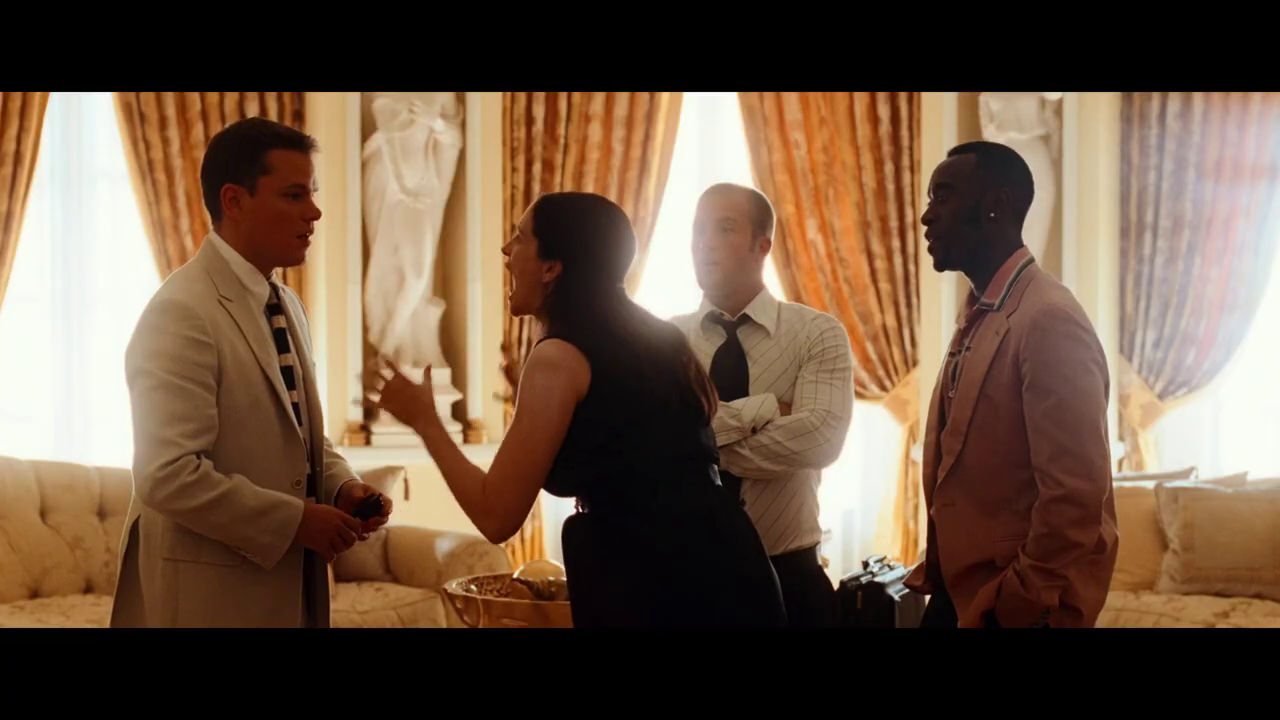
I try not to write about it too much, but we have been having a fairly terrible time over these last few months. Elder care sucks, you guys, and it only gets worse once you enter the end stage. Also? Euphemisms suck too.
Anyway, that’s why the newsletter is down to once a week at the moment. Every time I think I’ll be able to do a second one, something else needs to be addressed with urgency, so there we go. And sometimes it’s not even my fault! I’m still waiting on one of last week’s new releases to arrive, so I couldn’t write that piece even if I did have the time.
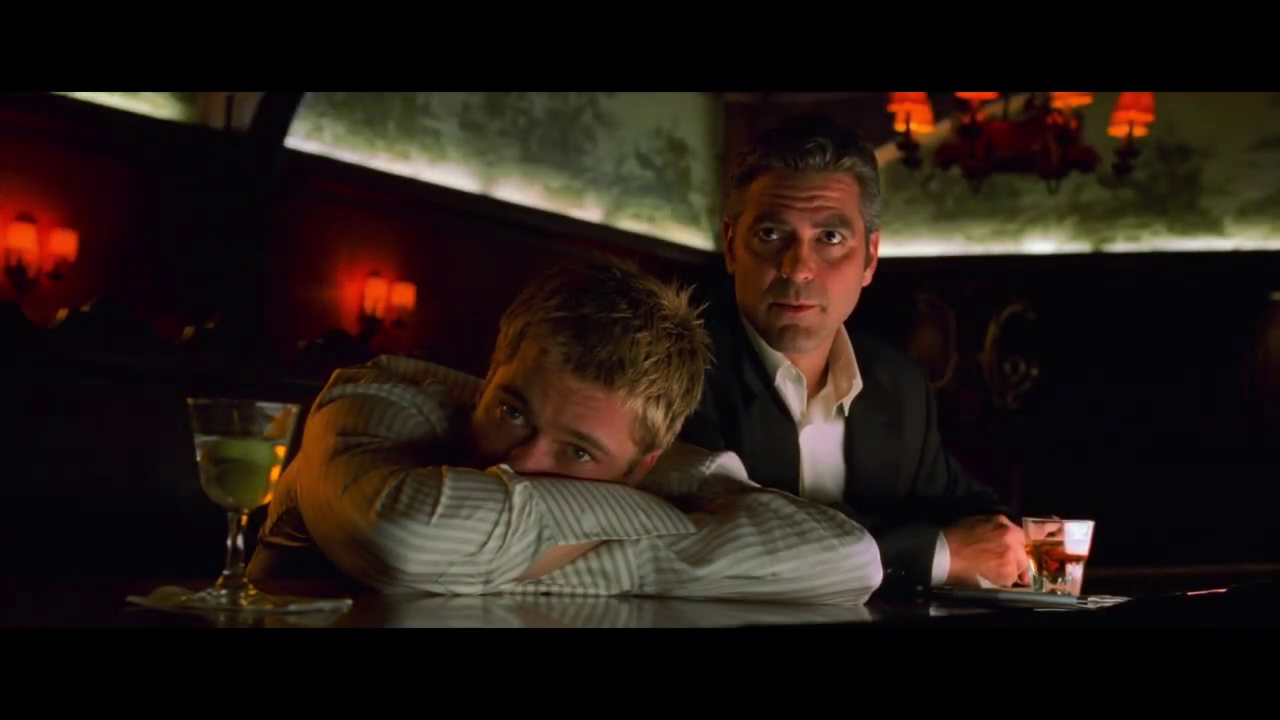
Perhaps it’s no surprise, then, that I am seeking comfort in the familiar whenever it’s available. Last week, Warner Home Entertainment released a 4K upgrade of Martin Scorsese’s The Departed; this Tuesday, the same label delivers Steven Soderbergh’s Ocean’s trilogy in Ultra High Definition, and let me tell you, it’s like they knew I needed them. Or maybe it’s Matt Damon’s way of reminding me I still owe him a fruit basket for helping me out during the Hereafter press conference that time.
As I said earlier this year, any 4K edition of a Soderbergh picture is cause for celebration, and with the upgrade of Contagion last month, the Ocean’s set this week and Magic Mike coming next month, it looks like Warner is throwing him one party after another. I ain’t complaining, and the results so far have been very pleasing indeed: Soderbergh is meticulous about the presentation of his work, and the Ocean’s trilogy is among his most polished and curated work. He once told me these films are the closest he’ll ever get to making superhero movies, and every time I revisit them I take a moment to wonder what the Marvel or DC universes might have looked like if they’d defined themselves with a similar level of flair or visual invention. Because these movies are candy, but they’re not empty calories.

To a one, the Ocean’s films are clockwork delights which don’t just celebrate the artistry of their heroes but invite us to appreciate the artists doing the appreciating. When people discuss Soderbergh’s brilliance they talk about the unmatched run of Out of Sight, The Limey, Erin Brockovich and Traffic, which culminated in his dual Oscar nominations for Best Director – he won for the latter – but everyone forgets that Ocean’s Eleven is part of that run as well.
Three years after Out of Sight, which scored with critics but not so much with audiences, Ocean’s Eleven let Soderbergh and George Clooney try something a little more commercial, placing his old-school charisma at the center of an all-star remake of a movie no one particularly liked in the first place. As Soderbergh pointed out at the time, people should remake bad movies more often; it lowers expectations and you’re less worried about tweaking the material. The 2001 model of Ocean’s throws out everything out except the premise, treats the whole thing as a comedy and lets us into the party – and as it turned out, this was the party post-9/11 America sorely needed.
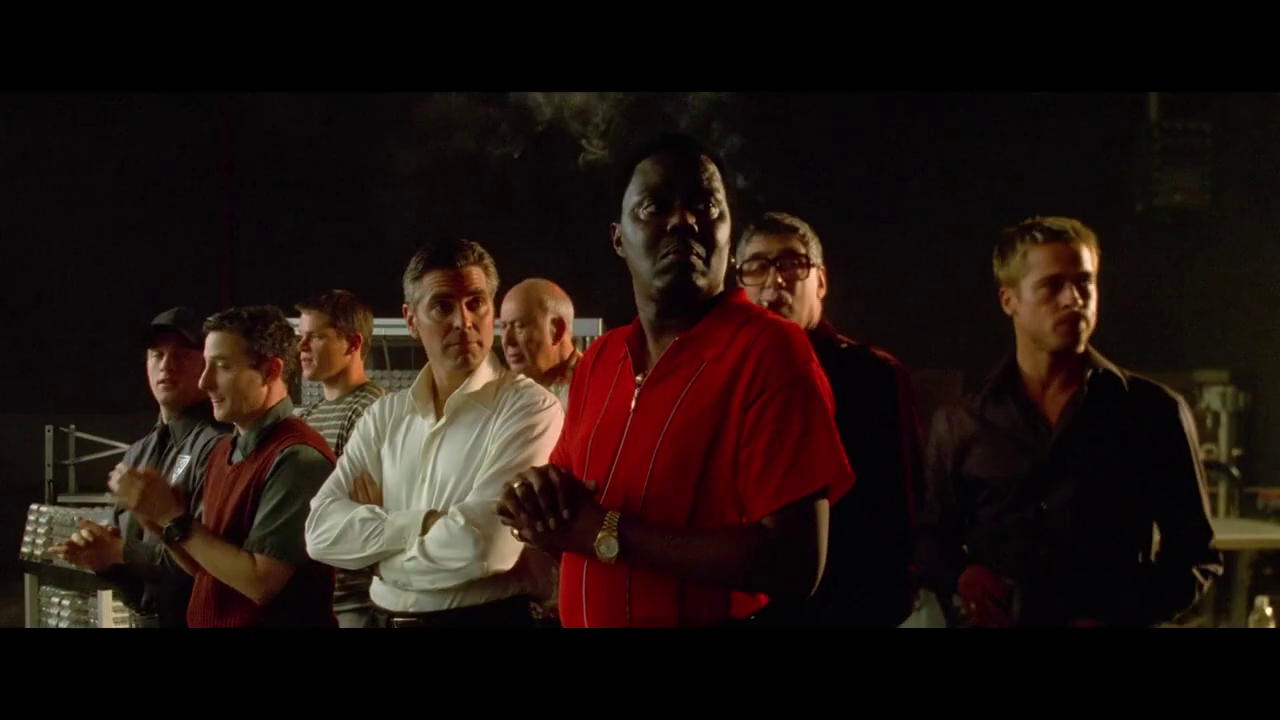
Ocean’s Eleven grossed almost half a billion dollars globally, and the sequels – while not quite as successful – did just fine, cracking $360 million and $310 million, respectively. Yes, I know, it’s weird to think of Steven Soderbergh as a guy with a billion-dollar franchise; I’m sure he finds it weird too. But that’s what you get when you make a perfect movie, and that’s what Ocean’s Eleven is.
Clooney plays Danny Ocean, a consummate thief who with his best pal Rusty (Brad Pitt, of course) assembles a crack team of criminal eccentrics to rob three Vegas casinos owned by genial asshole Terry Benedict (Andy Garcia) – who just happens to be the current paramour of Danny’s ex Tess (Julia Roberts), not that there’s anything personal about it. Except that there is, of course, and Danny’s attempt to woo Tess while fleecing her boyfriend is the runner that gives the movie its heart: Is Danny playing her for an advantage, or is he being honest when he tells her she’s the only person he’s ever loved?
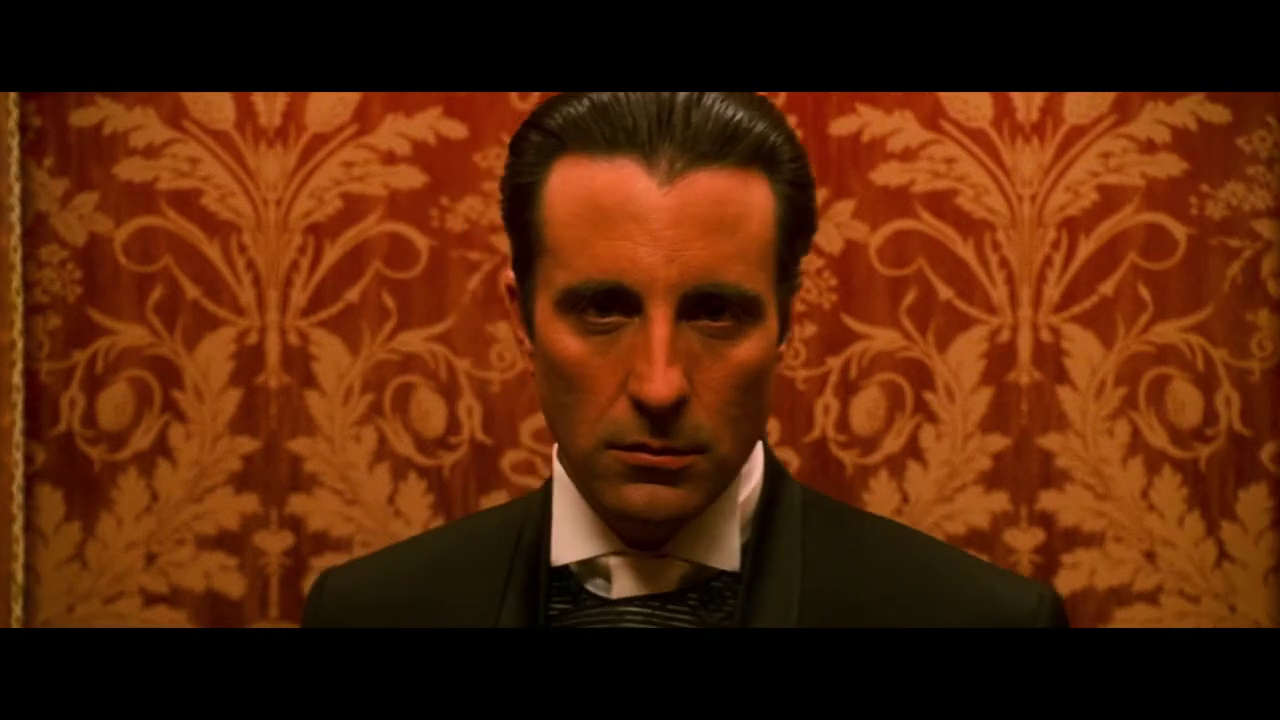
You can enjoy Ocean’s Eleven even if you don’t care about the personal stakes: There’s plenty of pleasure in the precision with which Soderbergh and screenwriter Ted Griffin set up the heist, and the double- and triple-bluffs within it, while also letting every single supporting player have a moment or two of fun. (This time through, I really appreciated the way Carl Reiner and Elliott Gould’s gentle crabbing plays as a more affectionate version of the pissy dynamic of Casey Affleck and Scott Caan’s Malloy brothers.) But the mechanics of the script are just an excuse for everyone to be their best selves amidst all the whirling parts, like an orchestra reaching new levels of coherence.
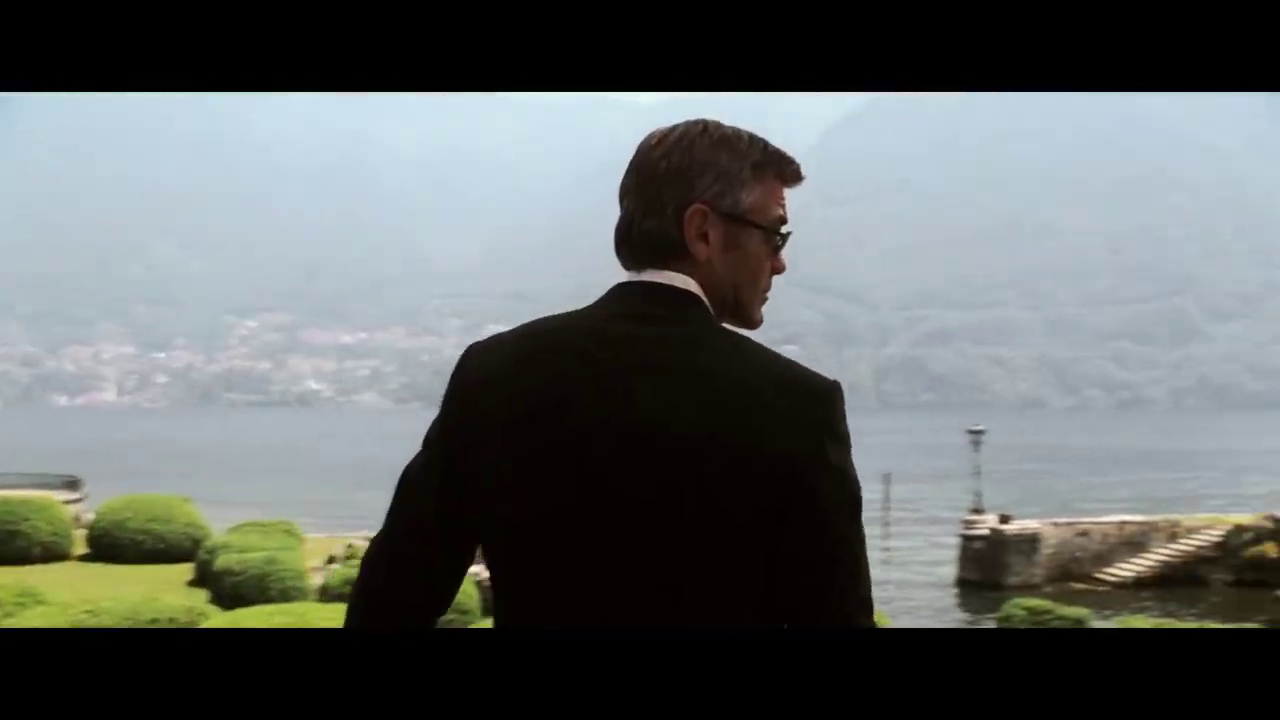
And then Soderbergh threw out the sheet music in Ocean’s Twelve, taking the success of Eleven as license to make a sequel that actively thwarts our expectations. You liked the way everything went smoothly in the first one? Well, watch as our heroes set up another perfect heist and get the rug yanked out from under them, forcing the B-team to come up with an entirely new plan that depends Tess’ resemblance to Julia Roberts – and then confounding that plan by having her run into the real Bruce Willis in the middle of the new heist. That Willis and Roberts co-starred as fake versions of themselves in The Player is the movie’s smartest and silliest joke – though that said, Matt Damon’s deflated delivery of “we can’t train a cat that quickly” as poor, put-upon Linus is my favorite moment of the whole trilogy.
After the perceived disappointment of Twelve (which, again: Still a monster hit), Soderbergh and company went back to basics for Ocean’s Thirteen – back to Vegas, back to casinos, and back to a heist with a personal motivation.

This time it’s to exact vengeance on an even bigger piece of shit, Al Pacino’s grasping, classless mogul Willy Bank, whose latest venture in screwing over his erstwhile partners has resulted in Gould’s Reuben landing in the hospital after a heart attack. And rather than a straight heist, the scheme this time is to up-end the idea that the house always wins, mounting an attack on Bank’s newest casino that’ll ruin the rat-bastard.
It’s not as ambitious or as risky as Twelve, but it’s not supposed to be; it’s a victory lap for the good guys in the last years of the miserable George W. Bush administration, and if it now plays as a pre-emptive middle finger to another would-be casino king with political aspirations, so much the better. Also it’s just a pleasure to behold, the product of gifted artists confident in their skills and how to execute them; to return to the orchestra metaphor, it’s a moment worthy of the Hollywood Bowl.
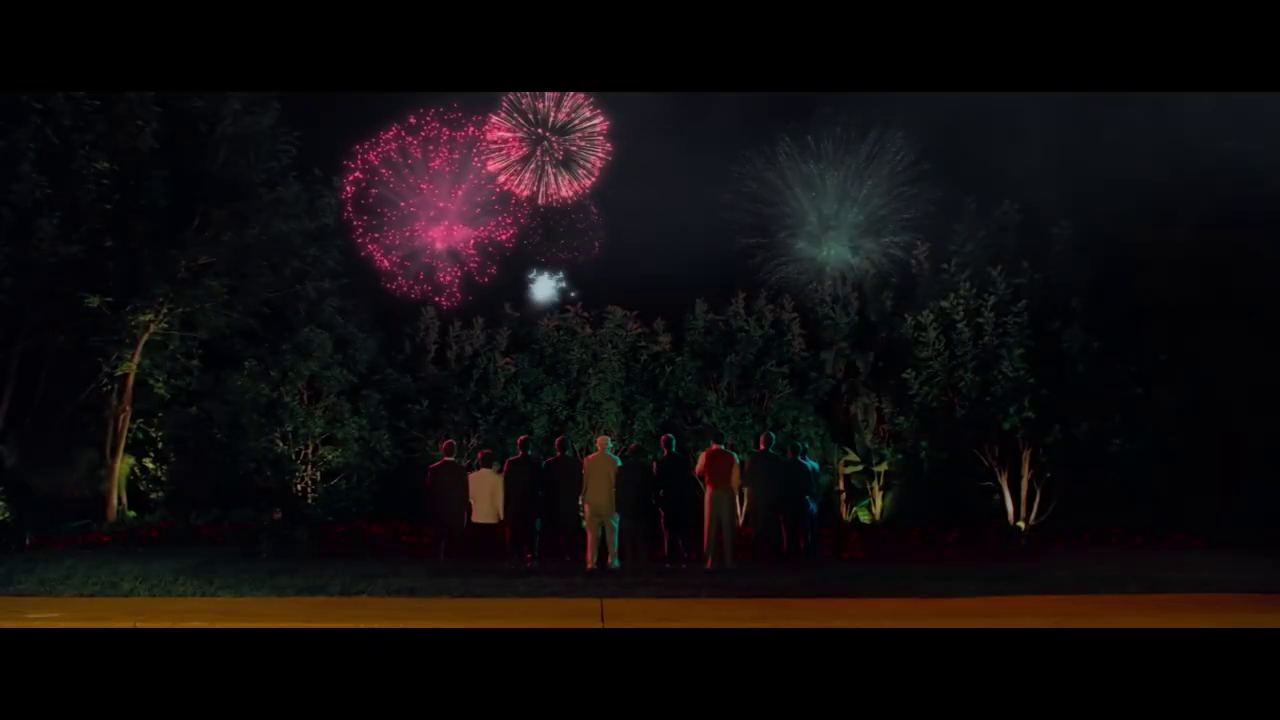
The Departed similarly offers the pleasure of a master at the peak of his craft. Which isn’t to say I rank it as highly as Taxi Driver or Raging Bull or The Last Temptation of Christ or GoodFellas or The Age of Innocence or Silence or Killers of the Flower Moon or any of the other genuine masterworks Martin Scorsese has made over his long and esteemed career; I’d put it in the second tier, with Mean Streets and Alice Doesn’t Live Here Anymore and The King of Comedy and After Hours and The Color of Money and Bringing Out the Dead and The Irishman and you get the idea. Like Soderbergh, the guy’s done so much great work that “not one of his best” can still mean “pretty goddamn essential”.

And like a lot of those second-tier films, The Departed is a fine example of Scorsese taking a studio gig and turning it into something so much better than it needed to be. Andrew Lau and Alan Mak’s Infernal Affairs is a kickass Hong Kong thriller, a perfect engine of mousetraps within mousetraps set in a gleaming paranoid world of cops and criminals locked in a never-ending détente, where rival bosses each hit on the idea of recruiting a baby-faced kid to infiltrate the bottom rung of the other organization and feed intelligence back over years or even decades– and, while the fake cop enjoys a decent life and the fake mobster disintegrates under the pressure of keeping up brutal appearances, we know their lives are fated to intersect with violent consequences.
Infernal Affairs opened in 2002, and was a big enough hit to spawn two very good sequels built on the scorched-earth carnage of the first film. The Departed sticks very closely to the original, shifting the setting from Hong Kong to Boston with Damon and Leonardo DiCaprio stepping into roles defined by Andy Lau and Tony Leung Chiu-wai and Jack Nicholson and Martin Sheen replacing Eric Tsang and Anthony Wong as their respective handlers, each with a small army of supporting players.
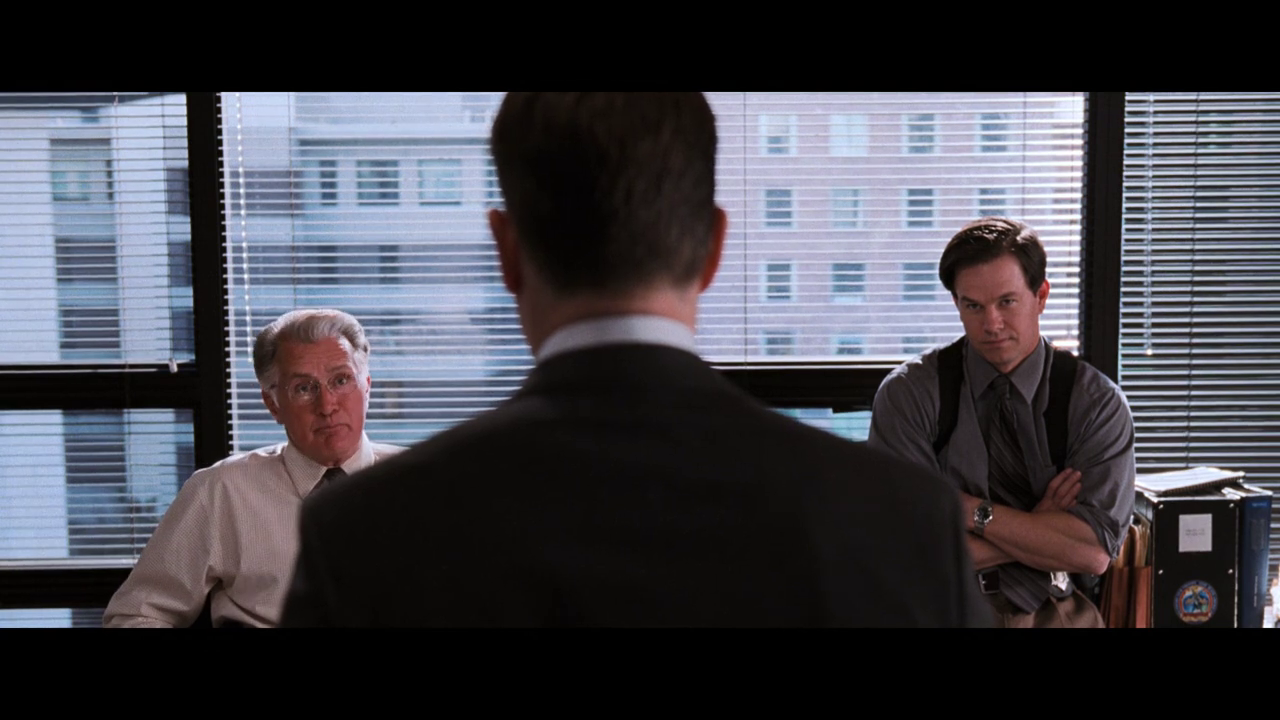
The remake is larger in scale if not in scope, with Scorsese and William Monahan building out the characters and the environment in a way that enhances the suffocating claustrophobia of Infernal Affairs’ core tragedy: It’s not the crimes or the paranoia that ruins these people, but the awareness that trusting another person with your honest self will be the end of both of you.
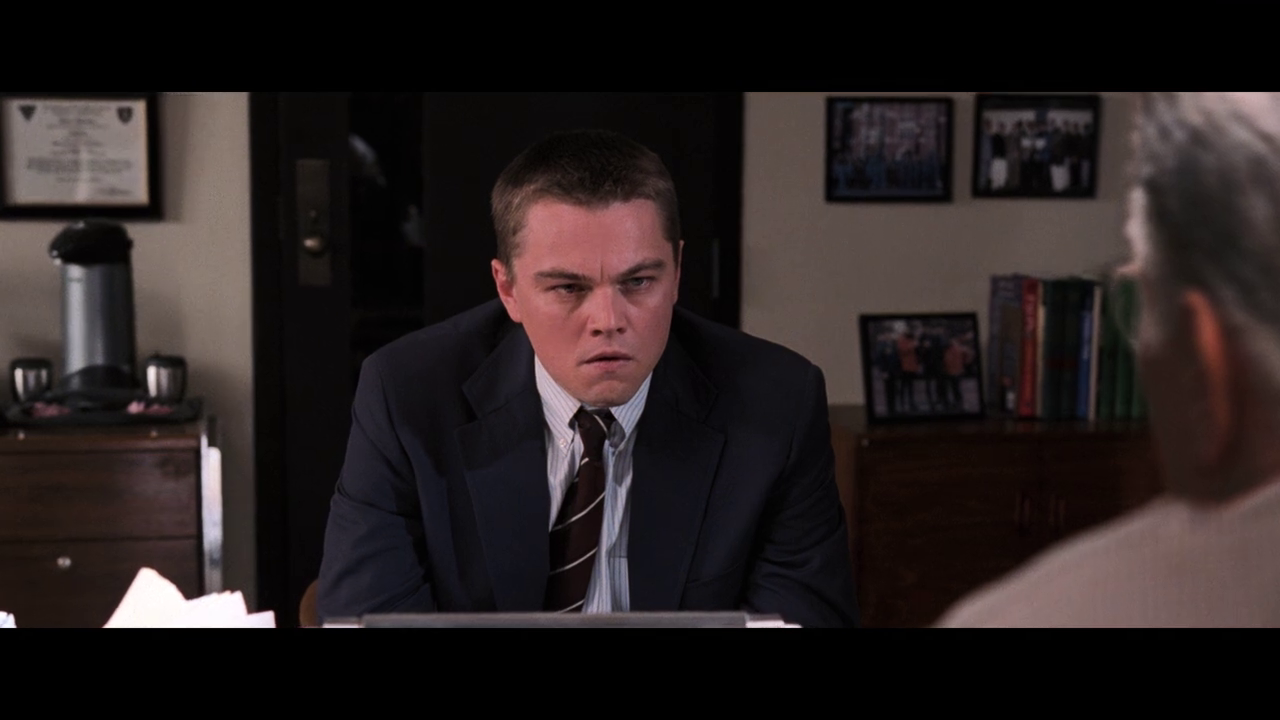
The deterioration of DiCaprio’s Billy Costigan as he finds himself effectively trapped in character – and his desperate attempts to blunt the violence in which he’s constantly forced to participate – is the through-line of the picture, with Damon’s turncoat trooper Colin Sullivan rising through the ranks of law enforcement and enjoying the success Costigan should have achieved. I remember wondering at the time whether the movie was Scorsese’s commentary on the viability of Method acting; this time through, it feels more like he was making a modern version of The Picture of Dorian Gray, with Sullivan’s amorality somehow weighing on Costigan’s shoulders.
Fulfilling the Hollywood truism that you rarely win the Oscar for the project you deserve to, The Departed took Best Picture, Best Film Editing, Best Adapted Screenplay and finally earning Scorsese a Best Director prize after five losses. Given that three of those previous nominations were for films like Raging Bull, The Last Temptation of Christ and GoodFellas, it’s hard not to see the Academy’s embrace of The Departed as a makeup award … but even if it is, it’s not like the movie didn’t deserve it.
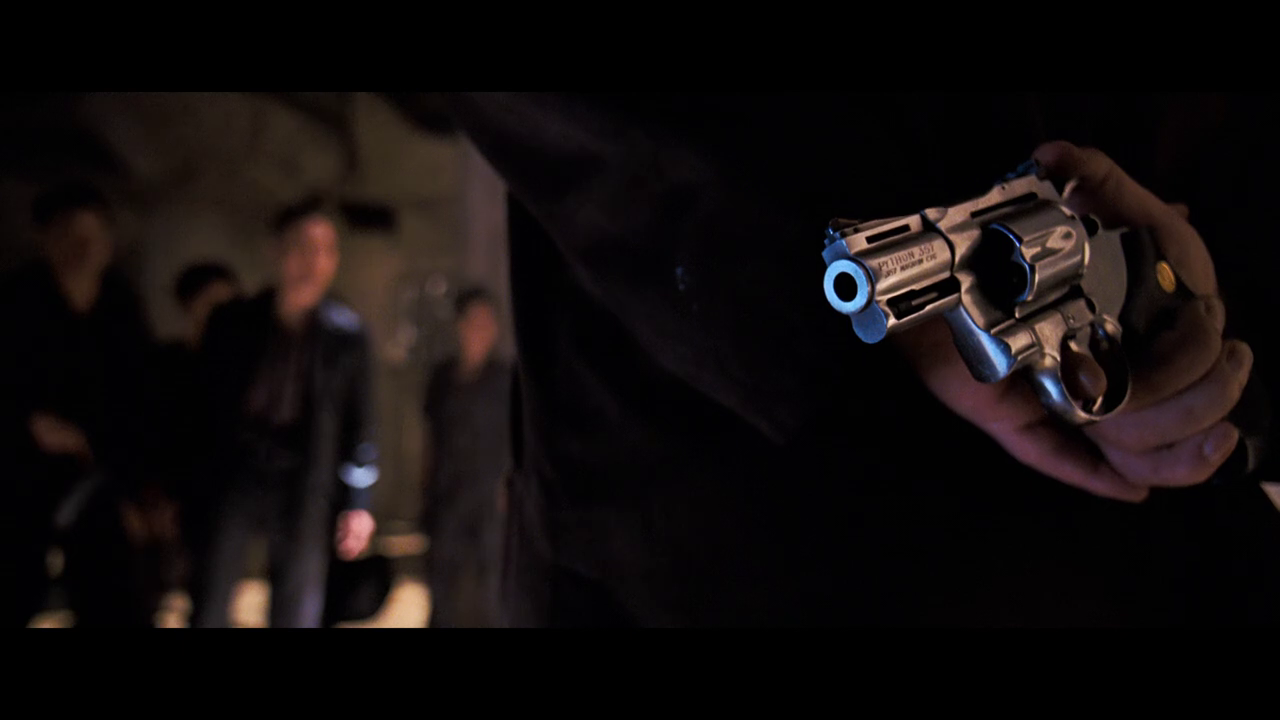
Ironically enough, it feels like a movie by someone putting aside his own expectations and just working for the fun of it; after the compromises of Gangs of New York and the enforced self-seriousness of The Aviator, The Departed is just a good story expertly told. And by not worrying about what it all means, or how it might be received, Scorsese frees himself up and unlocks all the fun stuff he sometimes puts aside – the pop soundtrack, the snappy editing, the delight in performance that we see in his appreciation of both Sheen’s paternal warmth and Mark Wahlberg’s blunt-object hostility – which only intensifies once he starts working with Alec Baldwin and realizes he's got the green light to get even more antagonistic.
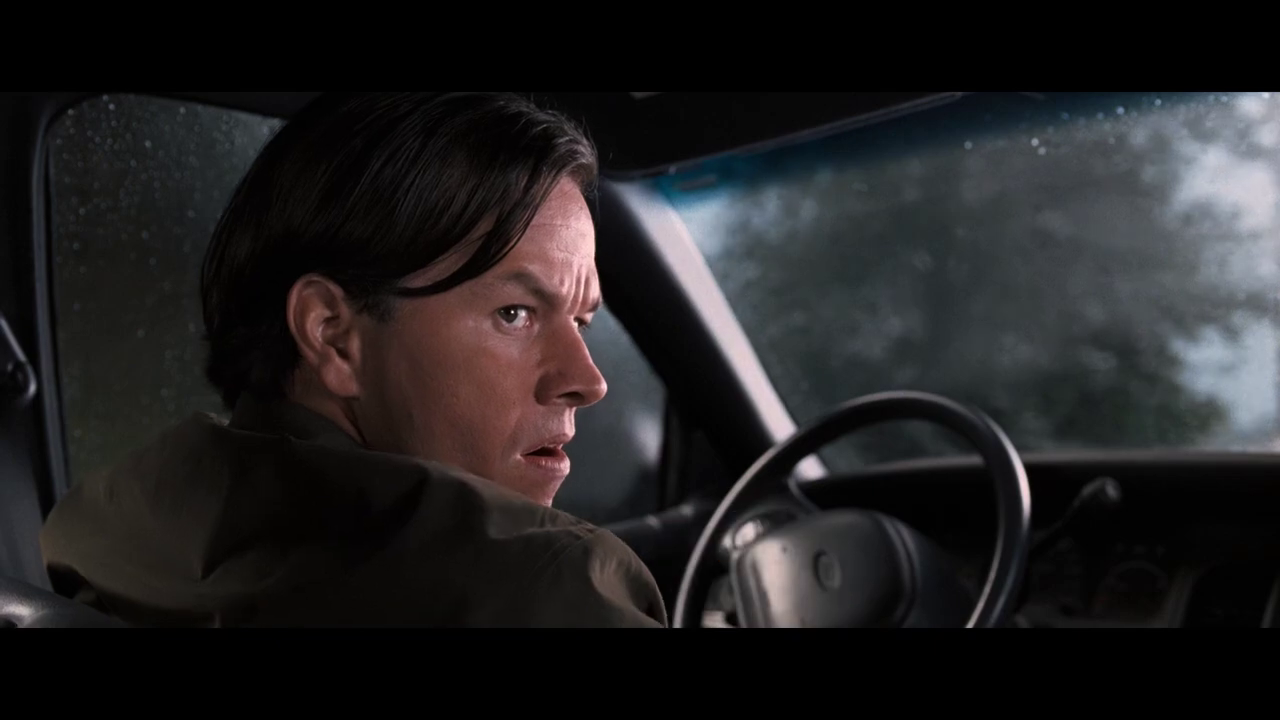
There’s not a wrong note sounded in two and a half hours, and in that way The Departed does sort of belong in the same conversation as Ocean’s Eleven: Both films demonstrate that the application of genuine artistry in commercial American filmmaking does not automatically mean financial failure. I’d extend that argument to the Ocean’s sequels as well, but this piece is already really long.
So let’s get back to Matt Damon for a moment because watching him in the Ocean’s movies and The Departed so closely together is a master class in understanding his value as a character actor, rather than a movie star. Both Soderbergh and Scorsese realize Damon’s greatest strength is that he seems uncomfortable in the spotlight; you don’t believe this guy wants to be scrutinized too closely.

It worked brilliantly for him in The Bourne Identity, where the character’s attempts to disappear were an ironic reflection of his desperate need to unpack his own murky memories; that same furtive quality makes him perfect for the role of Sullivan in The Departed, reflexively keeping his head down as a contrast to DiCaprio’s performative peacocking as Costigan. And of course the great running gag of Linus Caldwell in the Ocean’s movies is his conflicting compulsion to prove himself to Danny and his crew while also needing to showing them the respect his father he knows they deserve. Soderbergh fully understands Damon’s paradoxical appeal as an A-lister who’d rather be part of an ensemble, and Damon clearly loves the chance to puncture his movie-star aura; I expect that’s why they work together every chance they get, and why I’ll be there every time.
And someday I’ll get him that fruit basket.
The discs! While all three of the Ocean’s films are available in individual steelbook editions, the most efficient and economic option is to buy the trilogy as a set, nattily packed in a single slim case. Each film has been lovingly upgraded to 4K, with Soderbergh and his engineers treating high dynamic range as a license to play up the gloss and sparkle of the various locales; there are shots in Eleven where I’d swear you can see the specific color temperature of each bulb in a Vegas marquee, and moments in Twelve that capture the European atmosphere as a physical presence. And the splashy excesses of Thirteen, where Soderbergh uses the garish exuberance of Willy Bank’s aesthetic to see how far he can push his reds and blues, result in a startling sort of clarity in HDR, making the Bank casino seem almost as unreal as Linus’ fake schnozz. And even then, you can see how people would go for it.
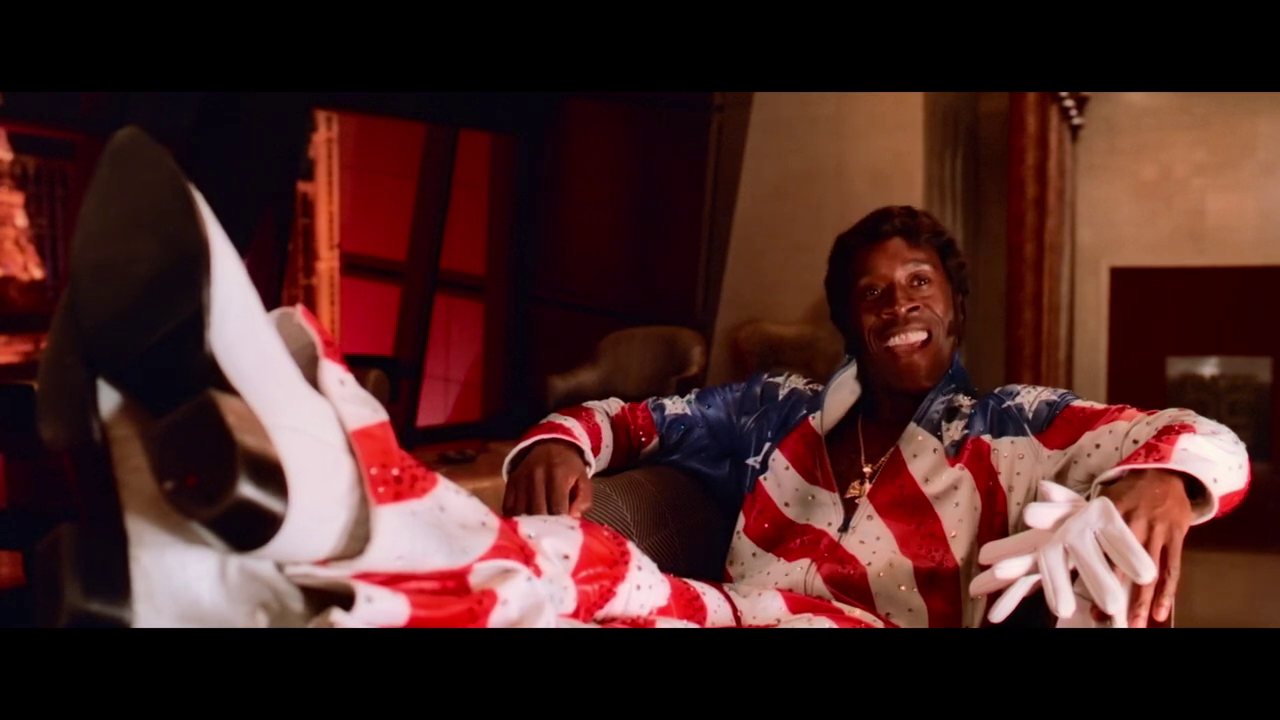
Audio for all three is presented in 5.1 DTS-HD; as much as I’d love to see Larry Blake launch a Swelltone Atmos line of remixes, these movies are already expertly engineered and mixed, enveloping us in activity from the jump while giving David Holmes’ jazzy, jaunty scores plenty of room to play.
Supplements are pulled from both the original editions of each film and the bonus disc included with Warner’s 2014 Blu-ray boxed set, so if you didn’t bother with that you’ll reap the rewards here: Each movie gets a half-hour retrospective documentary, and Ocean’s Eleven gets extra featurettes on the cast and the visual style, as well as what appears to be a contractually mandated featurette on how great the Sinatra original was, which, okay. Thirteen has a fun one about the machinery featured in the series, as well as the 45-minute 2007 doc “Masters of the Heist”. And the audio commentaries are invaluable documents on how to make a studio picture while still staying true to your weird little heart.
Speaking of which, Warner’s UHD upgrade of The Departed is just about perfect, offering the film in a beautiful, punchy remaster supervised by Scorsese’s longtime editor Thelma Schoonmaker (whose Oscar win here was just as deserved), bringing out new dimensionality in the image, deeper shadows and richer colors than previous HD transfers – produced in the very early days of the HD-DVD and Blu-ray formats – could offer. The 5.1 soundtrack is presented in DTS-HD rather than LPCM this time, but it’s just as vivid; silenced gunshots are sharp and shocking, and that Dropkick Murphys song still feels like it's invading the soundscape. I couldn’t ask for a better presentation.
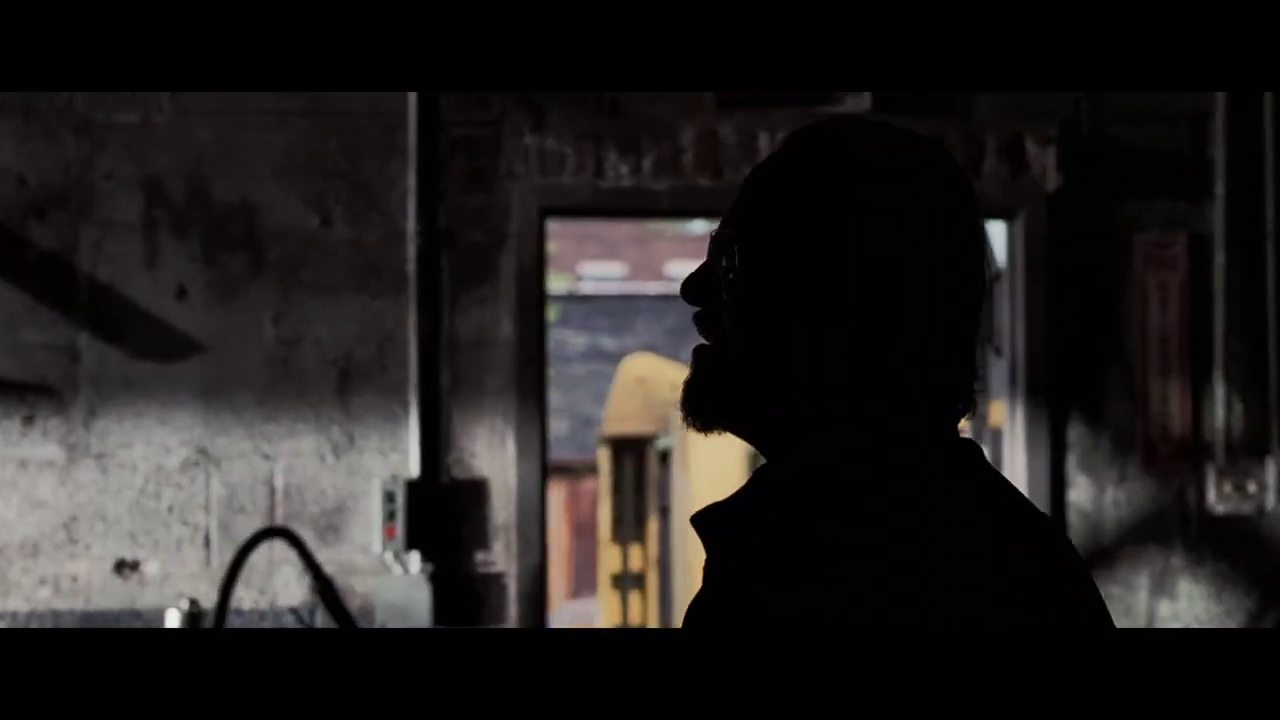
The disc also includes a new featurette, “Guilt and Betrayal: Looking Into The Departed”, in which Scorsese looks back on the project and how the gangster movies of his youth influenced his choices. It’s fifteen minutes long; I could have watched him for another hour. Ported over from earlier releases are twenty minutes of deleted and extended scenes and two featurettes: “Crossing Criminal Cultures”, a look at the making of the film, and “Stranger Than Fiction: The True Story of Whitey Bulger, Southie and The Departed”, expanding on Scorsese and Monahan’s decision to fold in elements of Bulger’s story to better calibrate the Infernal Affairs plot to an American locale.
Not included, dammit, is Richard Schickel’s feature-length documentary Scorsese on Scorsese, a 2004 biography (originally produced for Turner Classic Movies) that was included as a bonus on The Departed’s two-disc DVD release. I wish I could remember who borrowed my copy.
The Departed is now available from Warner Home Entertainment in standard and steelbook 4K editions; the Ocean’s Trilogy is available Tuesday, and the three films are also available as individual steelbooks.
Coming up soon: New releases! Lots of them! Night Swim and Lisa Frankenstein, Monolith, Madame Web and that Mean Girls musical, just to mix things up. And also more Disney TV in 4K, as a treat.
